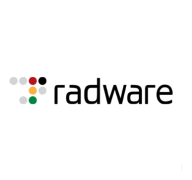

Radware Alteon and AWS WAF are competing in the network security domain, specifically focusing on application delivery and web application firewall functionalities. Radware Alteon seems to have the upper hand in hardware-based environments, while AWS WAF offers superior cloud-native capabilities and seamless integration with AWS services.
Features: Radware Alteon is known for features like load balancing, SSL acceleration, and robust application security. Its hardware strength and ease of certificate management enhance its appeal. AWS WAF stands out with its cloud-native capabilities, easy integration with AWS services, and customizable rule configurations for security.
Room for Improvement: Radware Alteon could enhance its GUI, streamline configuration processes, and improve support responsiveness in certain time zones. AWS WAF may benefit from better automation management, rule flexibility, and integration of DDoS protection directly within the WAF.
Ease of Deployment and Customer Service: Radware Alteon can be deployed across on-premises and hybrid cloud environments, offering strong customer service, though some areas experience slower response times. AWS WAF is easily deployable in public cloud settings due to its integration with AWS, but experiences mixed reviews on technical support.
Pricing and ROI: Radware Alteon's pricing is competitive with options like permanent licenses and the GEL model, providing good ROI despite higher costs. AWS WAF's pay-as-you-go pricing is considered affordable for cloud-native services, though some report rising costs with usage, creating an opportunity for improved cost management.
With AWS WAF, it is easier for us to block unwanted malicious DDoS attacks and threats from coming into our web application.
Resolving issues can take time because the support personnel may lack product expertise, leading to delays.
They reach out when you send them a ticket, and within 24 hours or less, someone is able to get back to you to solve your problem.
We never face support issues, and their team resolves any critical issues quickly once they are involved.
There is a dedicated expert answering even the toughest questions.
The customer service and support are excellent.
AWS WAF does scale in the sense that it is fully managed and has automatic scaling.
It handles peak loads and thousands of concurrent connections without exceeding 10% utilization.
We have it deployed across multiple geographic locations, benefiting from load balancing resiliency.
I would rate it a nine out of ten for scalability.
Since it protects web applications from common attacks such as SQL injection and XSS, it is very stable.
In terms of reliability, I would rate AWS WAF about six out of ten due to the need for improved signature sets.
We faced issues with AWS WAF when writing the custom rules.
We've never faced downtime, even during peak transaction hours.
There is minimal downtime, and the solution is quite stable.
There are no difficulties with the deployment of Radware Alteon; it is quite straightforward.
Compared to firewalls, WAFs generally provide limited stateful analysis capabilities.
The way we see it now is just mentioned as a percentage from bots and actual users, which should include proper graphs and detailed information.
Features like bot protection or DDoS mitigation, available with other WAF vendors, do not come natively with AWS WAF.
They keep integrating new features that sometimes break our production, but we use clustered systems, so we can test those software releases.
Other OEMs offer free courses and hands-on labs on new technologies and features, which we find useful.
In the future, I would like to see some other security features added, such as DDoS, which is Distributed Denial of Service.
Due to our status as an AWS shop, AWS WAF is cost-effective for us, and we benefit from discounts due to our extensive use of AWS services.
The licensing cost for AWS WAF is just pay-as-you-go; it is a service-based model.
For our solution, it was right in the middle of price performance.
The cost of the Radware solution is reasonable and stable.
The implementation and running costs are quite high.
The biggest benefit of AWS WAF for us is to filter malicious requests, so we can protect our environment and application from malicious actors.
It has also helped to improve the posture of our application, prevent all DDoS attacks, and unnecessary traffic and SQL injection that is reducing the performance of our application.
The cloud-native nature of AWS is crucial since most of our workload is in AWS, making AWS WAF native to Amazon Web Services.
The product allows us to manage multiple networks and VLANs into a single box and add numerous web services and farms efficiently.
The best feature of Radware Alteon is basically the configuration; how we configure it is very straightforward, and it is very simple to configure.
I find the best features to be the flexibility and ease of use.
| Product | Market Share (%) |
|---|---|
| AWS WAF | 5.8% |
| Radware Alteon | 2.2% |
| Other | 92.0% |

| Company Size | Count |
|---|---|
| Small Business | 22 |
| Midsize Enterprise | 12 |
| Large Enterprise | 26 |
| Company Size | Count |
|---|---|
| Small Business | 18 |
| Midsize Enterprise | 17 |
| Large Enterprise | 21 |
AWS Web Application Firewall (WAF) is a firewall security system that monitors incoming and outgoing traffic for applications and websites based on your pre-defined web security rules. AWS WAF defends applications and websites from common Web attacks that could otherwise damage application performance and availability and compromise security.
You can create rules in AWS WAF that can include blocking specific HTTP headers, IP addresses, and URI strings. These rules prevent common web exploits, such as SQL injection or cross-site scripting. Once defined, new rules are deployed within seconds, and can easily be tracked so you can monitor their effectiveness via real-time insights. These saved metrics include URIs, IP addresses, and geo locations for each request.
AWS WAF Features
Some of the solution's top features include:
Reviews from Real Users
AWS WAF stands out among its competitors for a number of reasons. Two major ones are its user-friendly interface and its integration capabilities.
Kavin K., a security analyst at M2P Fintech, writes, “I believe the most impressive features are integration and ease of use. The best part of AWS WAF is the cloud-native WAF integration. There aren't any hidden deployments or hidden infrastructure which we have to maintain to have AWS WAF. AWS maintains everything; all we have to do is click the button, and WAF will be activated. Any packet coming through the internet will be filtered through.”
Radware Alteon is an advanced network solution offering exceptional load balancing, SSL offloading, and integrated application protection. Its high performance and user-friendly interface make it ideal for enhancing server capacity and reliability in demanding environments.
Radware Alteon enhances performance with robust load balancing, SSL-TLS acceleration, and comprehensive security features. Its automated threat detection and real-time analytics provide crucial insights and mitigation within high-demand scenarios. Users benefit from seamless server and application traffic management along with web application firewall capabilities, ensuring high availability and compliance with security standards. Scalability is supported through strong hardware and ease of integration, although improvements are needed in cloud service automation and interface simplicity. Challenges include response times and live traffic monitoring, with limited resources in support and documentation. Scalability faces constraints due to throughput limitations.
What are the key features of Radware Alteon?Radware Alteon is crucial for industries requiring reliable load balancing across multiple servers and applications. It supports inbound and outbound traffic management, focusing on web application protection and data center security. Businesses in telecommunications, finance, and retail utilize its capabilities for server and link balancing, ensuring adherence to strict security standards with seamless functionality across diverse network environments.
We monitor all Web Application Firewall (WAF) reviews to prevent fraudulent reviews and keep review quality high. We do not post reviews by company employees or direct competitors. We validate each review for authenticity via cross-reference with LinkedIn, and personal follow-up with the reviewer when necessary.